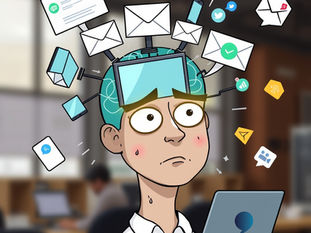
Crisis Intervention: Resources for Immediate Support
0
3
0
When someone faces a mental health crisis, timely and effective support can make all the difference. Emergency mental health resources are designed to provide immediate assistance to individuals experiencing distress, suicidal thoughts, or overwhelming emotional pain. This blog post explores the types of support available, how to access them, and practical steps to take during a crisis.
Understanding Emergency Mental Health Resources
Emergency mental health resources are services and tools that offer urgent help to people in psychological distress. These resources can include hotlines, crisis centers, mobile crisis teams, and online support platforms. They are staffed by trained professionals who provide counseling, risk assessment, and referrals to further care.
For example, many countries have dedicated suicide prevention hotlines that operate 24/7. Calling these numbers connects individuals to someone who can listen, provide emotional support, and guide them through their crisis. Some emergency rooms also have specialized psychiatric units to handle acute mental health emergencies.
Key features of emergency mental health resources:
Immediate availability, often 24/7
Confidential and non-judgmental support
Access via phone, text, or in-person
Connection to ongoing mental health care
These resources are vital for anyone feeling overwhelmed, hopeless, or unsafe. Knowing where to turn can save lives.

How to Access Emergency Mental Health Resources
Accessing emergency mental health resources can be straightforward if you know the right steps. Here are practical ways to get help quickly:
Call a Crisis Hotline
Many countries have national or regional crisis hotlines. These numbers are toll-free and staffed by trained counselors. For example, in the US, the Suicide & Crisis Lifeline can be reached by dialing 988.
Visit an Emergency Room
If someone is in immediate danger or experiencing severe symptoms, going to the nearest hospital emergency room is essential. Hospitals can provide urgent medical and psychiatric care.
Contact Mobile Crisis Teams
Some areas have mobile crisis intervention teams that come to your location. These teams include mental health professionals who assess the situation and provide on-site support.
Use Online Chat Services
For those who prefer digital communication, many organizations offer confidential chat or text services. These platforms provide real-time support and can be accessed from anywhere.
Reach Out to Trusted Individuals
Sometimes, talking to a trusted friend, family member, or community leader can help you connect with emergency resources.
When seeking help, be clear about the urgency and nature of the crisis. Providing details about symptoms, thoughts, and behaviors can help responders offer the best support.

What are crisis intervention services?
Crisis intervention services are specialized programs designed to provide immediate assistance during a mental health emergency. These services aim to stabilize the individual, reduce distress, and prevent harm. They often include:
Crisis Counseling: Short-term counseling focused on managing the immediate crisis.
Risk Assessment: Evaluating the risk of harm to self or others.
Safety Planning: Developing a plan to keep the individual safe.
Referral to Treatment: Connecting the person to ongoing mental health care or support groups.
Crisis intervention can take place in various settings, such as hospitals, community centers, or over the phone. The goal is to provide compassionate, effective support that helps individuals regain control and access further help.
For example, a person experiencing suicidal thoughts might call a crisis hotline, receive counseling, and be referred to a mental health clinic for follow-up care. Mobile crisis teams can also intervene in homes or public places to provide immediate support.
These services are essential for preventing escalation and promoting recovery.

Practical Tips for Supporting Someone in Crisis
If you know someone in crisis, your support can be crucial. Here are actionable recommendations to help:
Listen Without Judgment: Allow them to express their feelings openly.
Stay Calm: Your calm presence can help reduce their anxiety.
Encourage Professional Help: Suggest contacting emergency mental health resources or a healthcare provider.
Remove Means of Harm: If safe, help limit access to items that could be used for self-harm.
Stay With Them: Do not leave the person alone if they are at immediate risk.
Follow Up: Check in regularly to show ongoing support.
Remember, you are not expected to be a therapist. Your role is to provide empathy, encourage help-seeking, and ensure safety.
Finding Reliable Crisis Intervention Resources Online
In today’s digital age, many people turn to the internet for help. It is important to use trustworthy sources when searching for crisis intervention resources. One valuable platform is Synapse Mental Wellbeing, which offers a comprehensive collection of crisis intervention resources, including articles, guides, and contact information for emergency support.
When exploring online resources, look for:
Verified contact numbers and websites
Clear information about services offered
Confidentiality policies
Accessibility options (e.g., language, disability support)
Using credible online resources can empower individuals and families to find the right help quickly.
Emergency mental health situations require prompt and compassionate responses. By understanding the types of emergency mental health resources available and how to access them, you can be better prepared to support yourself or others during difficult times. Remember, help is always available, and reaching out is a sign of strength.





